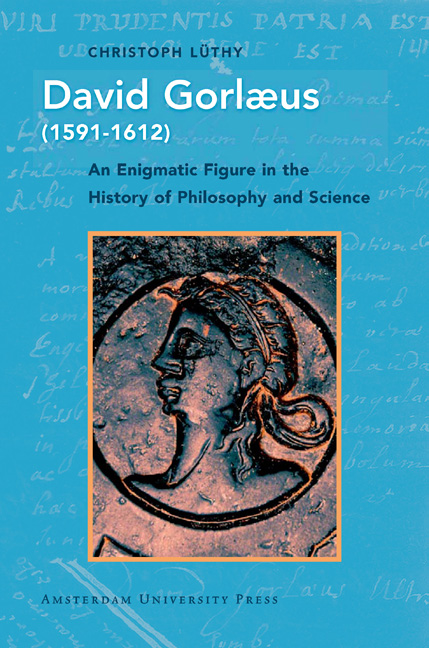Summary
I came across the name of David Gorlaeus for the first time while working on my doctoral dissertation on seventeenth-century matter theory in the early 1990s. The dazzling diversity of the authors who pleaded for the existence of atoms in the period 1590-1630 puzzled me greatly as I could find neither a coherent pattern nor an overarching concern in the various antiquarian, historical, theological, metaphysical, physical, alchemical and microscopic reasons that they offered. In a number of publications I have since examined a range of particularly puzzling figures or types of argumentation in favor of the existence of atoms. When life's circumstances took me to the Netherlands, where I have settled, I could not avoid turning my attention to David Gorlaeus, who seemed to me a particularly elusive figure. After all, very little was known about his life, and his ideas were particularly hard to place as they mixed metaphysics and natural philosophy in a markedly unusual way and in unexpected moments added observations taken from the fields of astronomy, optics and chemistry. When I read that the author had passed away at age 21, and that he was moreover starting out as a theology student and was not a person engaged in empirical research, my initial curiosity increased even further, turning into a detective's quest for the reconstruction of the circumstances that led to an inexplicable fact. The more I searched, the more I became convinced that Gorlaeus was an unusually talented thinker of extraordinary originality and maturity, notably when one considered the young age at which he wrote his works. In fact, I remain persuaded that his philosophical synthesis renders him one of the early seventeenth century's most brilliant Dutch intellects. Had he been granted more years to live and the chance to develop his thoughts further, so I now imagine, he might well have become as radical and famous a thinker as Spinoza. Although such counterfactual musings do not belong to the historian's task, they do in this particular case explain one of the main emotional reasons for investigating the short life of this talented thinker.
Some of my findings concerning Gorlaeus have been published before, but in places that are not easily accessible.
- Type
- Chapter
- Information
- David Gorlæus (1591-1612)An Enigmatic Figure in the History of Philosophy and Science, pp. 7 - 10Publisher: Amsterdam University PressPrint publication year: 2012



